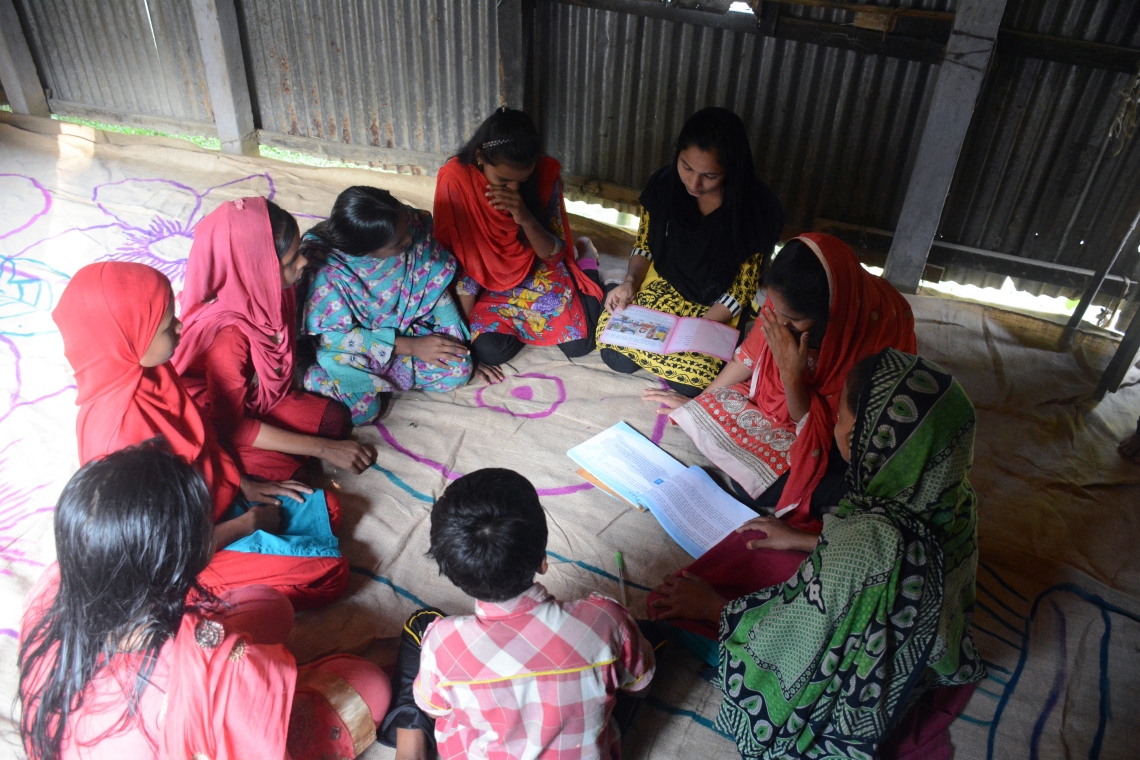
With adolescents making up more than 20 per cent of the population and all the cultural shame and stigma surrounding sexual and reproductive health and rights (SRHR) in Bangladesh, we can no longer deny the need for better SRHR education for our youth. Existing programmes cover only a small portion of the adolescent population and national curricula textbooks provide inadequate information. That is why the Breaking the Shame project is investigating ways to improve SRHR education in Bangladesh.
Launched in 2015, the three-year long study has been examining existing SRHR educational modules from two leading private organisations – Unite for Body Rights (UBR) and BRAC’s Adolescent Development Programme (BRAC ADP). The research aims to understand the unmet needs of adolescents with regards to their knowledge on sexual and reproductive health and rights, exploring the challenges that might prevail in the classroom when it comes to SRHR education and talking about these culturally sensitive topics.
While interviewing adolescents, teachers and peer leaders from the two interventions, I came across a 13-year-old girl named Beauty*. Hearing that my name was Farhana, she said, “That was my best friend’s name.”
“Was?” I asked. She explained that her friend had recently committed suicide.
“She had a boyfriend, but when her family got to know about it, they started saying bad things to her,” Beauty said. “She couldn’t handle it. What else she could possibly do? Our parents don’t understand us. I feel like committing suicide sometimes as well.”
Although Beauty’s story shocked me, I was reminded that it is unfortunately a common conviction among young girls and boys in Bangladesh; with a lack of guidance or even people to confide in about love, heartbreak and relationships, adolescents can easily become dejected by their negative experiences.
Our research revealed that Beauty and her peers wanted more information on a number of topics they often struggle with, because it remains missing from the existing SRHR curricula. Some topics were related to emotional and mental stress and anxieties due to their age, as well as coping with emotions and sexuality. They also mentioned emotional stress, anxiety and anger due to bullying, peer pressure, sexual harassment and relationship problems with their peers, as well as their parents or guardians. It seems they are given the knowledge about puberty and emotional changes, but are not taught the right ways of dealing with stress, anxiety and depression.
We found that while the existing curricula covered topics like wet dreams, pregnancy, STDs, and safe sex, they are never discussed properly due to the shame and stigma borne by the teachers themselves. The students often laugh when these subjects are raised, which makes teachers feel more embarrassed to discuss them. As a result we found that teachers resort to only discussing certain topics such as family planning, menstruation, sexual harassment, and HIV/AIDS; these topics are presented with an emphasis on only the biological front and associated risks.
Adolescents are only learning bits and pieces of information and not getting the full picture. For these reasons, several myths and misconceptions regarding SRHR issues surrounding the body, sexuality, agency, and gender roles still persist. We also found that pornography has become a critical source of information for adolescents, increasing the risk of gathering incorrect, incomplete or misleading information on sexuality and reproductive health.
It is important to acknowledge that adolescents have their own preferred ways of learning. Our research shows that they respond better to learning methods that are “fun” and reliable, but also ensures anonymity. Technology-centric educational materials through web-based platforms and videos (ie, YouTube) are a good option to allow adolescents to bypass gatekeepers and learn facts and information from a legitimate educational site.
In the era dominated by the Internet and social media, we believe that adolescents need reliable information sources that are not overwhelming. Based on our findings we aim to develop a module and YouTube video for adolescents on how to cope with emotional stress, and debunking common SRHR myths and misconceptions. An animation video on how to use condoms is also in the pipeline. By creating more innovative educational materials, we hope to ensure that more girls and boys like Beauty can effectively learn to cope with the challenges they face while growing up.
*Name has been changed for anonymity purposes.
This blog was written by Farhana Alam, a project coordinator at BRAC James P Grant School of Public Health.